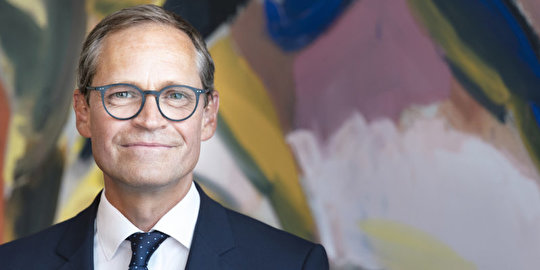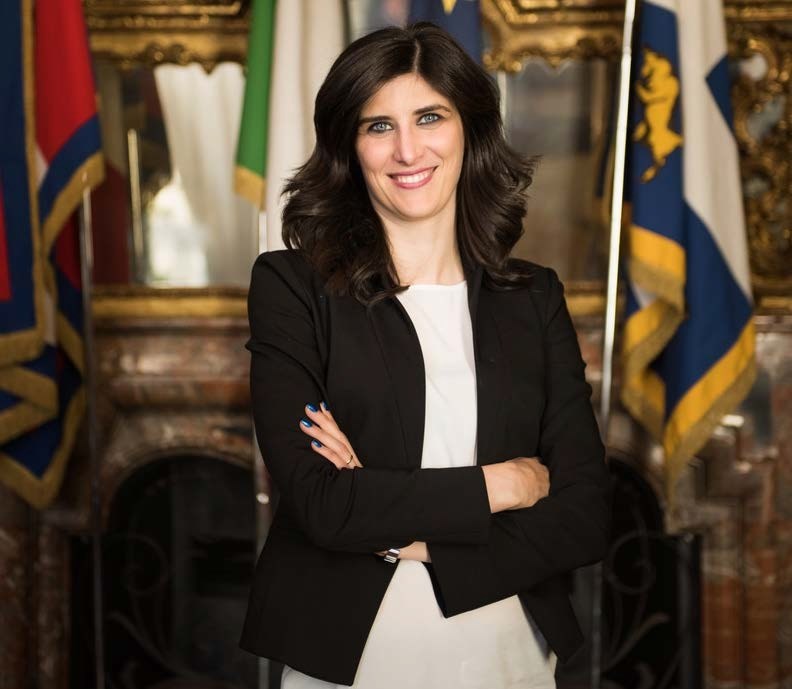
Photo: Michael Müller_Photo by Lena Giovanazzi
Governing in a pandemic: Some changes will be permanent, says Berlin’s Mayor
23 July 2020
by Sarah Wray
Compared with many other major global cities, Berlin’s experience so far with COVID-19 has been mild: the city of 3.8 million has recorded 8,500 cases and 215 deaths, part of a German response to the pandemic which has been widely seen as successful.
Still, the city is seeing deep impacts from the pandemic, from an economic slide that’s hit small businesses hard to the continuing shutdown of the city’s famous nightclub scene. And it’s not over: in recent weeks, Berlin has seen a new spike in coronavirus infections.
As part of a series of interviews with mayors of leading global cities and regions, The World Association of the Major Metropolises (Metropolis) spoke with Berlin’s Governing Mayor and President of Metropolis, Michael Müller, to find out how COVID-19 is affecting his city and its residents.
These interviews are published in partnership with Cities Today.
There have recently been new outbreaks of COVID-19 in Berlin, although Germany has been one of the world’s leaders in dealing with the pandemic. What’s the mood in Berlin now around this?
Mayor Michael Müller: We’ve seen sources of infection and spreading events in Berlin again and again, but it’s quite astonishing, given that we are a multi-million metropolis, that we are managing the cases and people in Berlin are reacting in a very responsible way.
Most people — not all of them, but most of them — are taking rules on distancing and hygiene protocols into account. And I think our healthcare system has played an important role in keeping infection figures down. We have to remain cautious. We’ve not left the pandemic behind, and the situation can change any time. We are far away from normality, but we have reached a position where we can handle the situation.
What makes me feel quite despondent is to see our cultural offerings so negatively impacted. This is something we miss because Berlin has a very special atmosphere that is shaped by openness and people meeting each other.
What are some examples of how the city has responded to the social and economic aspects of the crisis?
Starting with public transport, we set up kilometres of cycling paths within weeks, which was unthinkable before. I think a lot of it will be preserved after the pandemic is over, and that it’s had a positive impact in terms of acceptance — people see that it works and that it is a benefit to our city when we move away from car transport.
A second point that is important to me is the economy, of course. We have many companies who have just two or three staff, many cultural companies and people who are active in startups or technology, and they were hit very hard by the crisis.
Within only a few days, we managed to set up a grant programme for micro-enterprises, and 200,000 entrepreneurs who work on their own were granted between €5,000 ($US5,808)and €9,000 (US$10,455).
It was very important to support them with as few bureaucratic hurdles as possible for them to be able to overcome this first phase.
How is citizen engagement changing as people stay home more during the pandemic?
Civic engagement is very diverse in Berlin. We have around 3.8 million inhabitants, and 1 million of them are engaged in terms of active citizenship, providing service to their neighbours and community, be it in a church, a sports club or in housing districts.
Some of that is not happening – in the area of sports, for example, because supporting youth in sports was no longer possible when there were no sports offerings. On the other hand, the pandemic made it very clear how swiftly neighbourhood support could be organised for senior citizens. People are supporting each other by buying medicine, doing grocery shopping, informing each other — people who had been living alongside each other for years, not knowing each other, are suddenly getting in touch during the pandemic to help out.
Active citizenship doesn’t always have to be organised or supported by large organisations and associations. It can be very simple and individual. In Berlin, there is a large spectrum of mutual support. We saw this particularly in 2015 when we took in refugees from Syria, for instance, and a lot of the supports and structures that were set up back then are still functioning today, even though we don’t have that big of an influx of refugees anymore. People have learnt this.
And is that learning activated by the city administration, or happening organically?
Both, I would say. A lot of active citizenship and engagement is happening without any support from the city government. And this is good. But we do offer a platform with online services where you can see what volunteering jobs can be done. And this is run by the city.
We also offer financial support for large initiatives that need an infrastructure or material for the work. We will profit over the coming years from the structures that we are currently putting in place to deal with the pandemic.
And I think on the whole, much will be preserved after we have overcome the pandemic. Neighbours helping neighbours will also be kept in place because people will have learned how to support each other. Once these contacts have been established, I think they will stay in place.
What other governance changes are happening now that could have a lasting impact on the city and its people?
Another long-term effect will be the extension and development of science and higher education, which is part of my portfolio as Governing Mayor of Berlin.
Now that we are facing the coronavirus pandemic, research and higher education has received a boost and people are realising that investments in these areas is money well spent for us as a society as a whole.
Not many mayors have authority over those areas. Is there a benefit to that?
I can’t give advice to my colleagues about the decisions they should take, but for Berlin, it’s been a happy coincidence. We have a long history and have become established as a science and research hub.
Many foundations and leading scientists came to Berlin over the past years because of the scientific and research freedom they enjoy here. There’s no interference from the state and from the public authorities with their research.
There are also many institutions that were set up here because we create the right conditions. There are 200,000 international students here, from all over the world, enrolled at our universities. And that is a huge benefit for our startups and for our creative industries as well because our scientists and researchers are able to collaborate with them.
This has paved the way for Berlin’s successful development over the past years. And now the pandemic shows that we have direct access to research and higher education institutions.
Scientists came to Berlin because they can work here freely. And I think this is something that cities have to stand for — they have to be beacons of free tolerant exchange between different cultures, faiths, religions, ideologies and political beliefs. We need this freedom in our work. Otherwise we will not achieve good results.
Berlin is very active in city-to-city networking — what’s the value in that for your city, and how is that changing in the pandemic?
Collaboration is very important for us — we learn from other cities’ experiences. They contribute new approaches and solutions, and that is a great help in our work. We have 17 city partnerships.
We are active in many networks, like Metropolis. We have had video conferences with many of my colleagues, the mayors of other capital cities that have had similar experiences to us.
We’ve all witnessed how easy it is to establish contact — to be in touch through video conferences and conference calls. It’s a very important tool for our collaboration. But we’ve also learned that a video conference cannot be a panacea for everything.
This year, we are celebrating an anniversary of our city partnership with Istanbul, and we would have liked to come together in person — to see exchanges between artists happening, or maybe between young people. A video conference cannot replace all of these exchanges.
It’s very important to be in personal contact if you want to get a feel for other people’s’ mentality, for their cultural specificities, and to learn from each other. It’s a double-edged sword, this kind of virtual experience.
In the near future, I don’t think we will have many of these short trips just to fly to other cities for a couple of hours to attend a conference — I think we will use video conferences for these formats. Nevertheless, we have learned to appreciate that there’s really no alternative to people coming together. Staying in touch in person is very important for a vibrant city partnership
This interview has been translated from German and edited for length and clarity.






